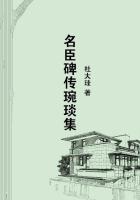Clay therefore was of a party. Taking a prominent part, as he did, in all the great political questions of his country for the last half century, the wisdom of his course on many is doubted and denied by a large portion of his countrymen; and of such it is not now proper to speak particularly. But there are many others, about his course upon which there is little or no disagreement amongst intelligent and patriotic Americans. Of these last are the War of 1812, the Missouri question, nullification, and the now recent compromise measures. In 1812 Mr. Clay, though not unknown, was still a young man. Whether we should go to war with Great Britain being the question of the day, a minority opposed the declaration of war by Congress, while the majority, though apparently inclined to war, had for years wavered, and hesitated to act decisively. Meanwhile British aggressions multiplied, and grew more daring and aggravated. By Mr. Clay more than any other man the struggle was brought to a decision in Congress. The question, being now fully before Congress, came up in a variety of ways in rapid succession, on most of which occasions Mr. Clay spoke. Adding to all the logic of which the subject was susceptible that noble inspiration which came to him as it came to no other, he aroused and nerved and inspired his friends, and confounded and bore down all opposition. Several of his speeches on these occasions were reported and are still extant, but the best of them all never was. During its delivery the reporters forgot their vocation, dropped their pens, and sat enchanted from near the beginning to quite the close. The speech now lives only in the memory of a few old men, and the enthusiasm with which they cherish their recollection of it is absolutely astonishing. The precise language of this speech we shall never know; but we do know we cannot help knowing--that with deep pathos it pleaded the cause of the injured sailor, that it invoked the genius of the Revolution, that it apostrophized the names of Otis, of Henry, and of Washington, that it appealed to the interests, the pride, the honor, and the glory of the nation, that it shamed and taunted the timidity of friends, that it scorned and scouted and withered the temerity of domestic foes, that it bearded and defied the British lion, and, rising and swelling and maddening in its course, it sounded the onset, till the charge, the shock, the steady struggle, and the glorious victory all passed in vivid review before the entranced hearers.
Important and exciting as was the war question of 1812, it never so alarmed the sagacious statesmen of the country for the safety of the Republic as afterward did the Missouri question. This sprang from that unfortunate source of discord--negro slavery.
When our Federal Constitution was adopted, we owned no territory beyond the limits or ownership of the States, except the territory northwest of the River Ohio and east of the Mississippi. What has since been formed into the States of Maine, Kentucky and Tennessee, was, I believe, within the limits of or owned by Massachusetts, Virginia, and North Carolina. As to the Northwestern Territory, provision had been made even before the adoption of the Constitution that slavery should never go there. On the admission of States into the Union, carved from the territory we owned before the Constitution, no question, or at most no considerable question, arose about slavery--those which were within the limits of or owned by the old States following respectively the condition of the parent State, and those within the Northwest Territory following the previously made provision. But in 1803 we purchased Louisiana of the French, and it included with much more what has since been formed into the State of Missouri. With regard to it, nothing had been done to forestall the question of slavery. When, therefore, in 1819, Missouri, having formed a State constitution without excluding slavery, and with slavery already actually existing within its limits, knocked at the door of the Union for admission, almost the entire representation of the non- slaveholding States objected. A fearful and angry struggle instantly followed. This alarmed thinking men more than any previous question, because, unlike all the former, it divided the country by geographical lines. Other questions had their opposing partisans in all localities of the country and in almost every family, so that no division of the Union could follow such without a separation of friends to quite as great an extent as that of opponents. Not so with the Missouri question. On this a geographical line could be traced, which in the main would separate opponents only. This was the danger. Mr. Jefferson, then in retirement, wrote:
"I had for a long time ceased to read newspapers or to pay any attention to public affairs, confident they were in good hands and content to be a passenger in our bark to the shore from which I am not distant. But this momentous question, like a firebell in the night, awakened and filled me with terror. I considered it at once as the knell of the Union. It is hushed, indeed, for the moment. But this is a reprieve only, not a final sentence.
A geographical line coinciding with a marked principle, moral and political, once conceived and held up to the angry passions of men, will never be obliterated, and every irritation will mark it deeper and deeper. I can say with conscious truth that there is not a man on earth who would sacrifice more than I would to relieve us from this heavy reproach in any practicable way.
"The cession of that kind of property--for it is so misnamed--is a bagatelle which would not cost me a second thought if in that way a general emancipation and expatriation could be effected, and gradually and with due sacrifices I think it might be. But as it is, we have the wolf by the ears, and we can neither hold him nor safely let him go. Justice is in one scale, and self- preservation in the other."















